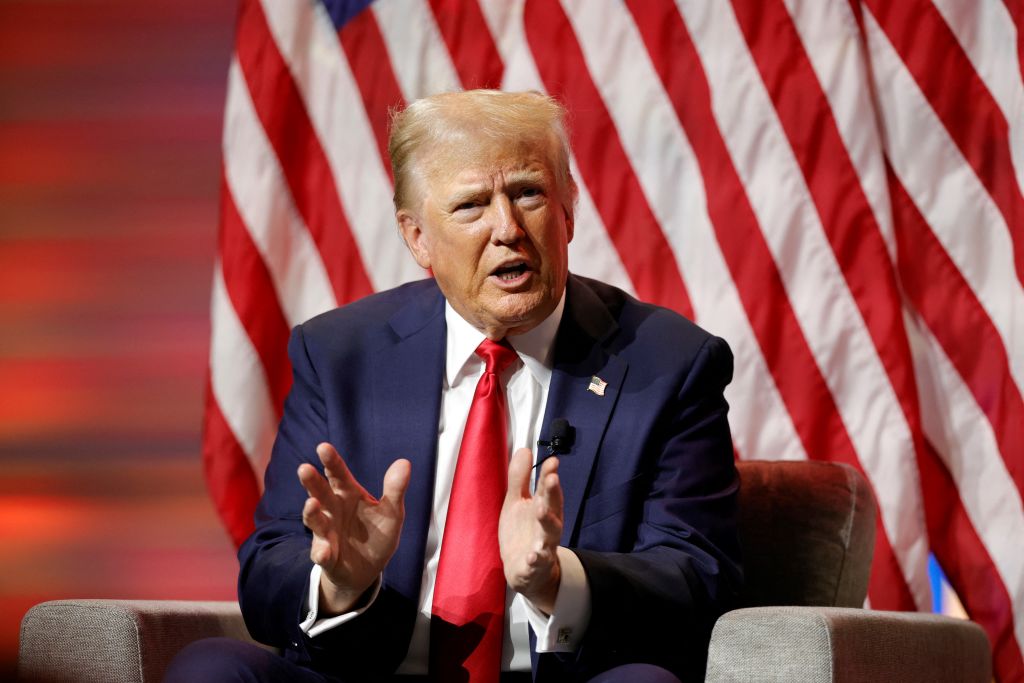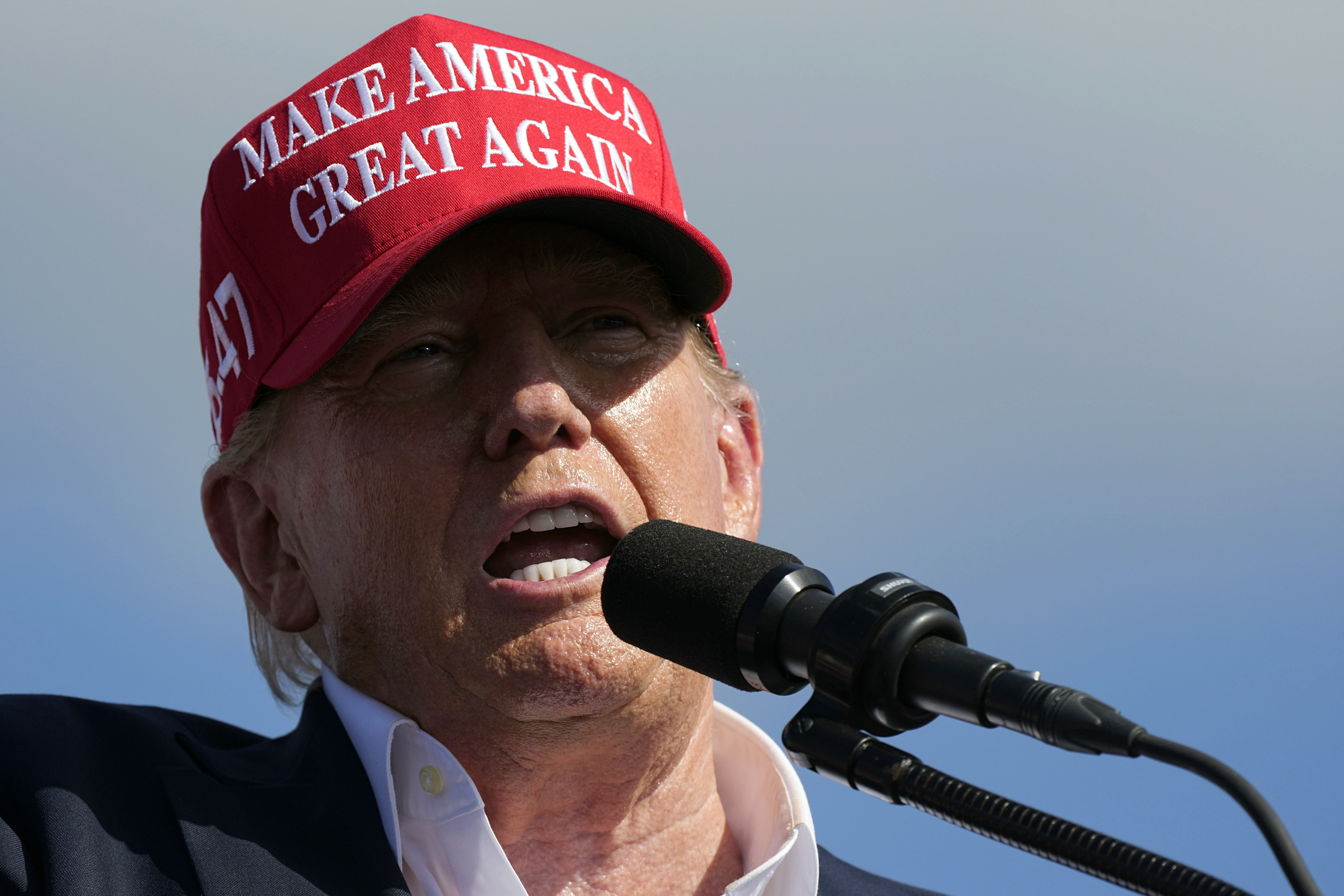Former President Donald Trump's lawyers moved Friday to halt proceedings in his New York hush money criminal case and postpone next month's sentencing indefinitely while he attempts to have a federal court intervene and potentially overturn his felony conviction.
In a letter to the judge presiding over the case in state court, Trump's lawyers asked that he hold off on a decision, slated for Sept. 16, on Trump’s request to overturn the verdict and dismiss the indictment in the wake of the U.S. Supreme Court’s recent presidential immunity ruling.
They also urged the trial judge, Juan M. Merchan, to postpone Trump's Sept. 18 sentencing indefinitely.
Trump's lawyers filed paperwork late Thursday asking the U.S. District Court in Manhattan to seize the case from the state court where it was tried. The federal court kicked back that request on Friday on technical grounds, but Trump's lawyers will have a chance to resubmit it.
Trump’s lawyers said delaying the proceedings is the “only appropriate course” as they seek to have the federal court rectify a verdict they say was tainted by violations of the Republican presidential nominee's constitutional rights and the Supreme Court’s ruling that gives ex-presidents broad protections from prosecution.
If the case is moved to federal court, Trump’s lawyers said they will then seek to have the verdict overturned and the case dismissed on immunity grounds. They previously asked Merchan to delay Trump's sentencing until after the November election. He hadn't ruled on that request as of Friday.
Get Tri-state area news delivered to your inbox. Sign up for NBC New York's News Headlines newsletter.
“There is no good reason to sentence President Trump prior to November 5, 2024, if there is to be a sentencing at all, or to drive the post-trial proceedings forward on a needlessly accelerated timeline," Trump's lawyers Todd Blanche and Emil Bove wrote.
The letter, dated Thursday, was not added to the docket in Trump's state court case until Friday.
Merchan did not immediately respond. The Manhattan district attorney’s office, which prosecuted Trump’s case, declined to comment. The office objected to Trump's previous effort to move the case out of state court last year and has fought his attempt to get the case dismissed on immunity grounds.
Trump was convicted in May of 34 felony counts of falsifying business records to conceal a $130,000 hush money payment to porn actor Stormy Daniels, whose affair allegations threatened to disrupt his 2016 presidential run. Trump has denied her claim and said he did nothing wrong.
Falsifying business records is punishable by up to four years behind bars. Other potential sentences include probation or a fine.
The Supreme Court's July 1 ruling reins in prosecutions of ex-presidents for official acts and restricts prosecutors in pointing to official acts as evidence that a president’s unofficial actions were illegal.
Trump’s lawyers have argued that prosecutors rushed to trial instead of waiting for the Supreme Court’s presidential immunity decision, and that prosecutors erred by showing jurors evidence that should not have been allowed under the ruling, such as former White House staffers describing how he reacted to news coverage of the hush money deal and tweets he sent while president in 2018.
Trump’s lawyers had previously invoked presidential immunity in a failed bid last year to get the hush money case moved from state court to federal court.



